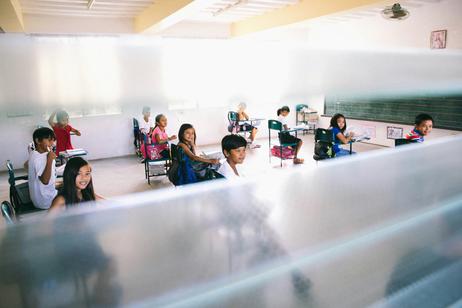Why Consider Boarding School? (Updated 2025)
Boarding school continues to attract families in 2025 for its rigorous academics, diverse communities, and structured support systems. While tuition costs have risen, financial aid, income-based tuition models, and broader access policies are changing the landscape. This guide explores why boarding school remains a powerful choice for students today, with updated insights on tuition, demographics, programs, and outcomes.
What Boarding School Means in 2025
A boarding school is a residential community where students live and learn on campus. Most offer both 7-day boarding and 5-day boarding options, alongside day students. What distinguishes boarding school in 2025 is the emphasis on whole-child education—academic rigor paired with mental health support, cultural competency, sustainability programs, and leadership development.
For families, boarding school offers an immersive environment that fosters independence, collaboration, and resilience—qualities increasingly important for both college readiness and life beyond.
Who Attends Boarding School? Updated Demographics
Boarding schools today are more diverse and globally connected than ever before:
Roughly 10% of U.S. K-12 students attend private schools, with boarding schools representing a distinctive segment. (U.S. Department of Education)
The majority of boarding schools have a mix of domestic and international students. At Blair Academy, for instance, more than 20% of students come from outside the U.S., representing 30+ countries.
Student-faculty ratios remain small, typically 5:1 to 7:1, allowing highly personalized instruction.
These figures reflect a trend toward inclusivity and global perspective—key reasons why families choose a boarding school environment.
Tuition and Financial Aid in 2025
Sticker prices for boarding schools are high, but schools are increasingly transparent about financial aid.
| Boarding Option | Typical Tuition (2025) | Aid & Policy Trends |
|---|---|---|
| Full Boarding (7-day) | $60,000–$80,000+ annually | Elite schools like Deerfield Academy cap tuition at 10% of income for families under $500,000, with free tuition under $150,000 household income. |
| 5-Day Boarding | ~$55,000 annually | Appeals to regional families; often benefits from the same financial aid packages as full boarding. |
| Day Students | $45,000–$65,000 | More affordable while still giving access to academics and extracurriculars. |
Examples:
Groton School: Boarding tuition is about $60,000; day students pay ~$47,000. Roughly 40% of students receive aid.
Hotchkiss School: Boarding tuition tops $71,000; more than one-third of students receive need-based grants averaging over $62,000.
Blair Academy: Tuition is $78,980 in 2025; 36% of students receive financial aid, averaging ~$55,000.
For more details on costs across schools, see How Much Does Boarding School Cost in 2025?
Why Families Choose Boarding School
The advantages of boarding school extend well beyond academics:
1. Academic Excellence
Rigorous coursework (AP, IB, dual enrollment).
Robust STEM, arts, and humanities programs.
Access to world-class faculty, labs, and performance spaces.
2. Global & Cultural Exposure
Diverse student populations bring international perspectives.
Schools frequently offer exchange programs and service learning abroad.
3. Personal Growth & Independence
Students learn time management, resilience, and leadership by living away from home.
Structured dorm life balances freedom with accountability.
4. College Preparation
Boarding schools have high college matriculation rates, with many graduates attending selective universities.
Strong alumni networks provide mentoring and career pathways.
5. Wellness & Support
Expanded counseling services address student stress.
Schools integrate mindfulness, sports, and creative outlets into daily life.
Policy Shifts Making Boarding School More Accessible
In recent years, schools have made significant changes:
Income-based tuition: Deerfield Academy’s sliding-scale model is influencing peer schools.
Transparency in aid: More schools now publish average aid amounts and percentages of students receiving assistance.
Diversity and inclusion initiatives: Focus on socioeconomic, racial, and geographic representation.
Hybrid readiness: Schools have expanded tech infrastructure for flexibility, a legacy of pandemic adaptations.
These policy shifts are reshaping who can realistically access a boarding school education in 2025.
Considerations Before Choosing Boarding School
Despite the advantages, boarding school is not right for every family. Important considerations include:
Affordability: Even with aid, tuition is a major investment.
Homesickness: Younger students may struggle with separation.
Cultural fit: Each boarding school has distinct values—religious, secular, traditional, or progressive.
Location: Travel logistics matter, especially for international families.
Student workload: Academic rigor can be intense; balance is essential.
For guidance on matching school culture to family values, see Choosing the Best Boarding School: 10 Key Factors (2025).
Case Studies: Boarding School in Practice
Deerfield Academy (MA): Free tuition for families under $150,000 income; tuition cap for families earning up to $500,000.
Blair Academy (NJ): $78,980 tuition with generous aid; 21% of students are international.
Groton School (MA): Roughly 40% of students on aid; strong balance of academics and community service.
These schools illustrate both the costs and the creative ways institutions are working to broaden access.
Is Boarding School Worth It in 2025?
For many families, the answer is yes. Boarding school offers:
Rigorous academics.
Lifelong networks.
Personal growth opportunities unmatched by day schools.
Yet it requires careful consideration of fit, cost, and student readiness. The boarding school of 2025 is not just about academics—it is about nurturing adaptable, global citizens prepared for college and beyond.
Final Thoughts
Choosing a boarding school is a deeply personal decision. With updated financial models, inclusive demographics, and strong academic and personal outcomes, boarding schools in 2025 are opening doors for more families than ever before.
For families willing to make the investment—whether financial, emotional, or both—the boarding school experience continues to deliver transformative results.















